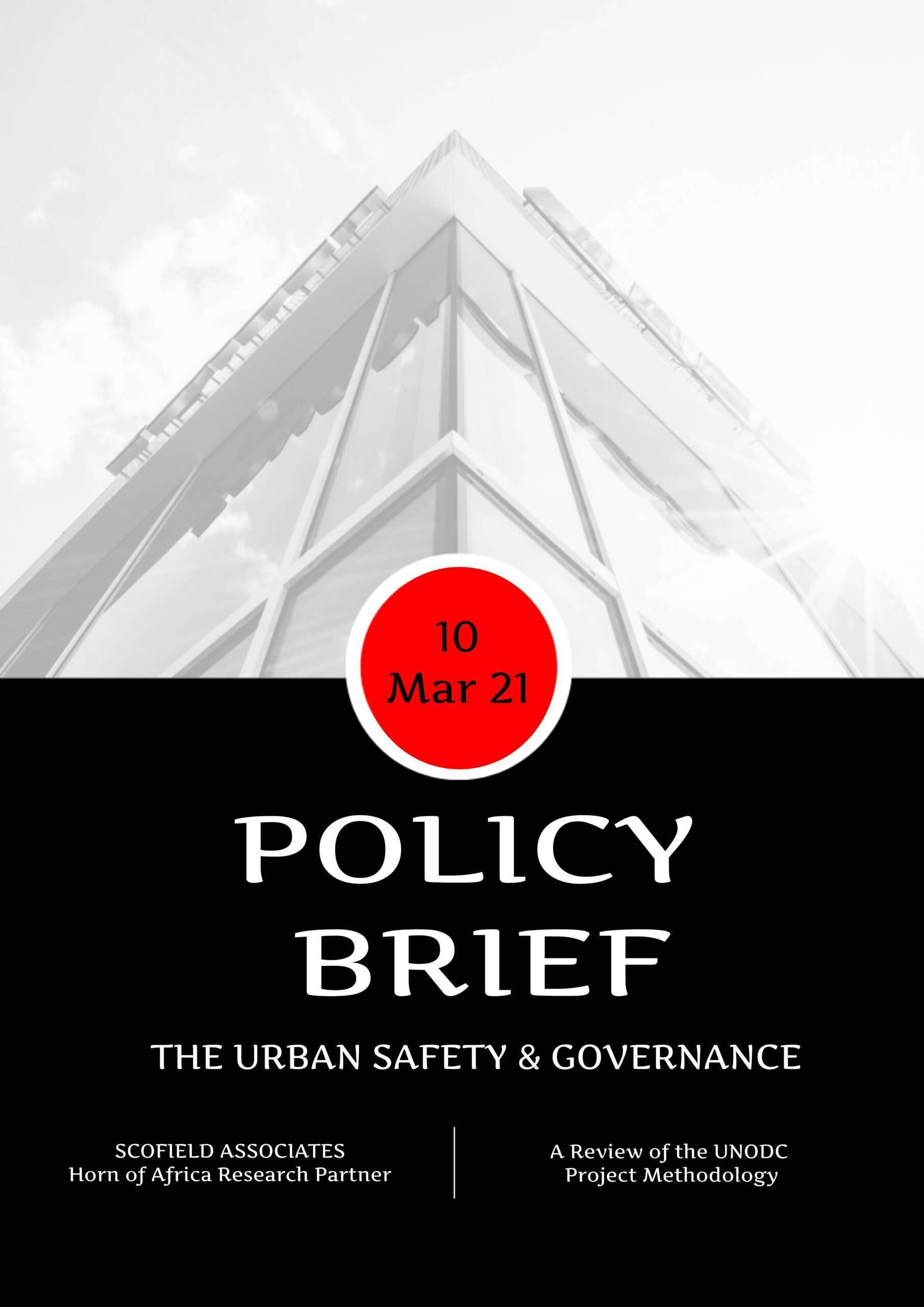SA/PB/Mar 2021

The Urban Safety & Governance:
A review of the UNODC Project Methodology.
Briefs and Policy Reviews
Overview
There are enormous challenges in the urban setup. These include; providing adequate urban services and amenities, alleviating urban poverty, designing new infrastructure, establishing systems of governance, and revitalizing slum neighborhoods. These challenges are multiplied
when growth is rapid and continuous, where there are critical shortages of capital, skills, and information, and where levels of poverty and inequality are extreme.
Additionally, the presence of illicit flows provides insecurity as a challenge to urban safety. Access to the critical elements to achieve urban safety and governance in a city significantly depends on the extent of how the city governance functions, the local political processes, capacity of the government to respond, and the influence of the civil society organizations and other development partners.
The UNODC has just launched a wonderful program to achieve this purpose; in three pilot cities across the globe. Nairobi – Kenya, serves as one of the cities chosen to be beneficiaries from the project. While an assessment was carried out in one of the informal settlements in the city, the
methodology used to select the area leaves gaps resulting in inconclusive results for the project.
While the project exudes confidence based on the experience from UNODC, reliance on the current methods of activity application and assessment will not achieve the four objectives of the project. This policy brief provides a review of the methods proposed for the project and offers
recommendations to each of the four objectives included in the project.